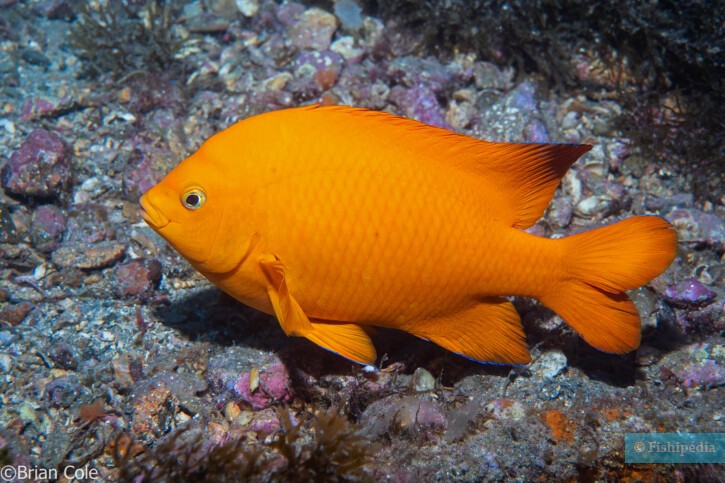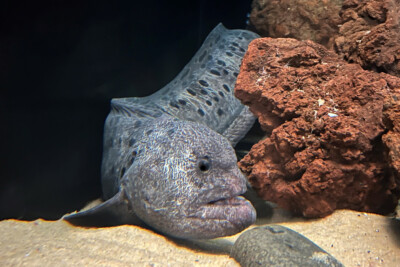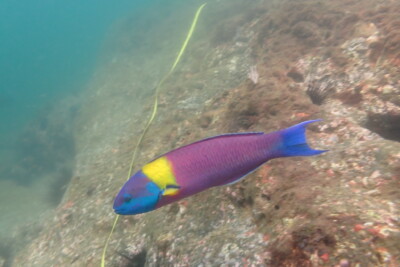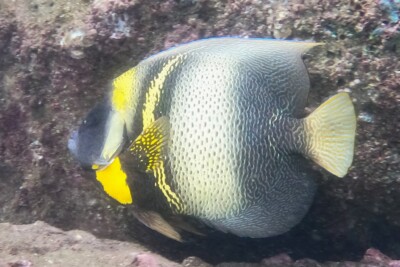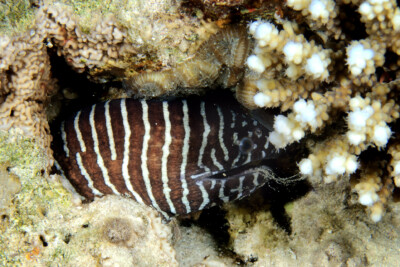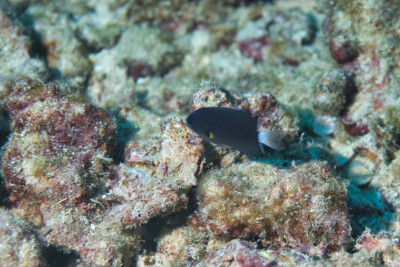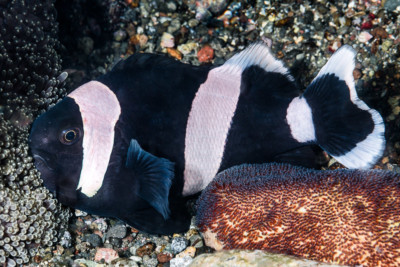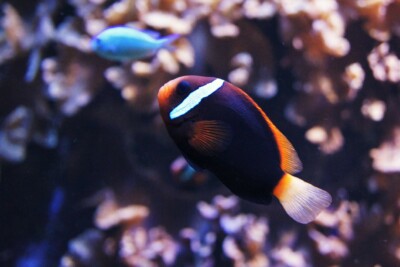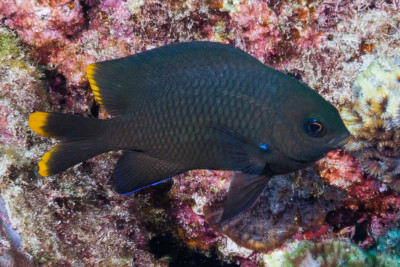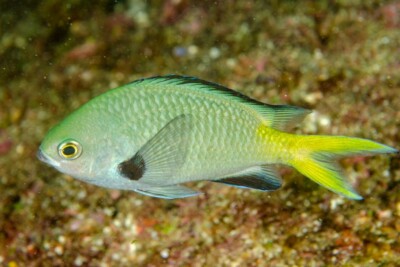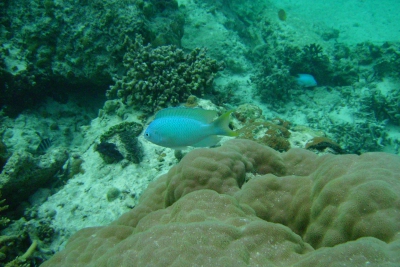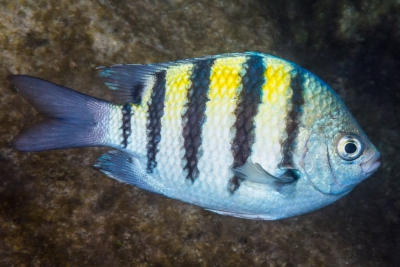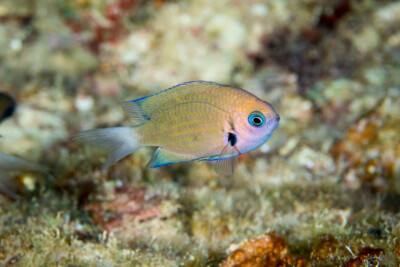garibaldi damselfish
| Scientific name | Hypsypops rubicundus |
|---|---|
| Descriptor | Girard |
| Year of description | 1854 |
| IUCN category (World) | LC |
| Family | Pomacentridae |
| Genus | Hypsypops |
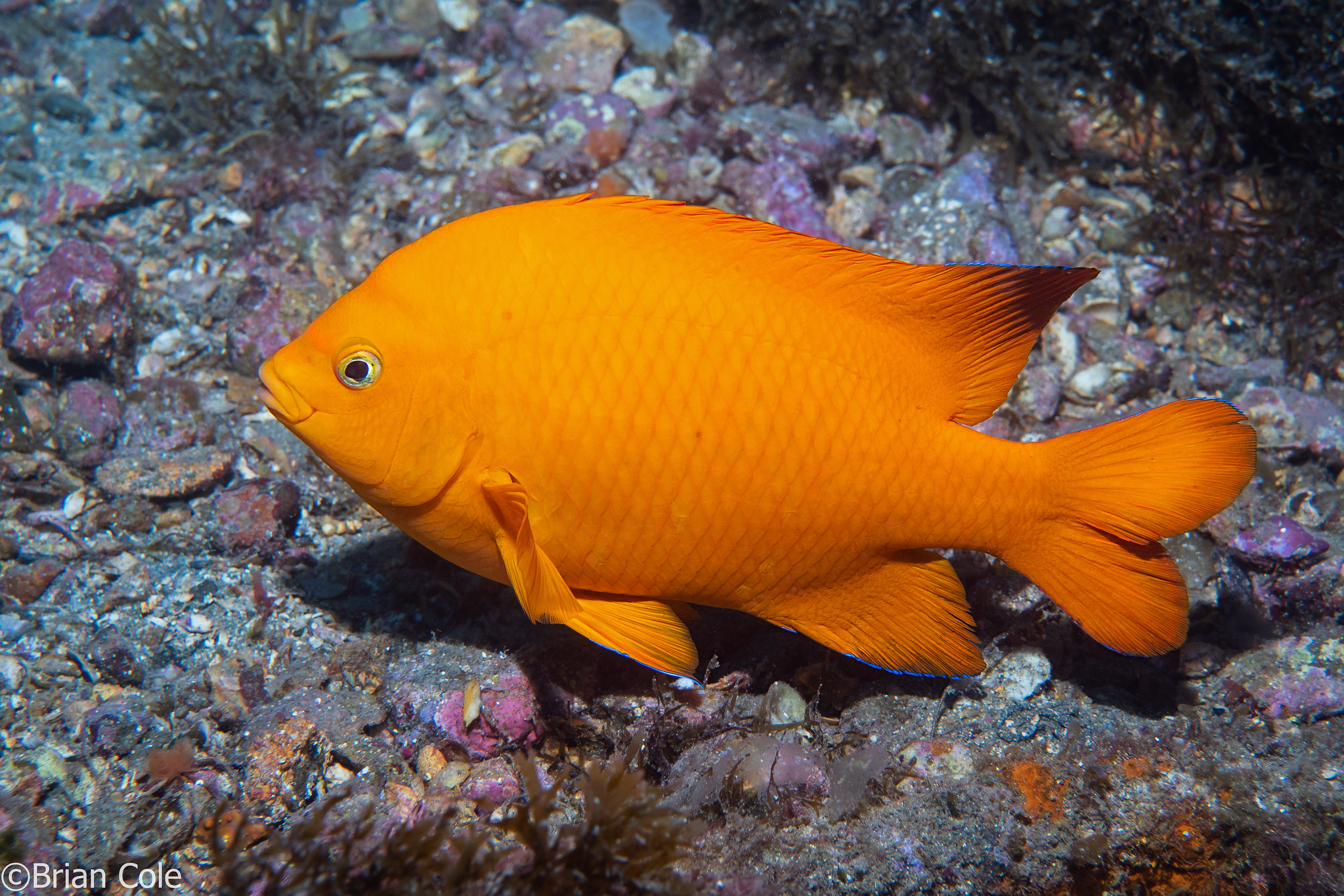

Introduction
Hypsypops rubicundus, commonly known as garibaldi damselfish, is a salt water fish from the Océan Pacifique Nord Est Tempere Chaud.
This sheet is currently being prepared. The texts currently proposed come from our data model or are being drafted. To request priority for this content, you can write to us HERE.
Who is it?
Morphology
-
Average size25 cm
-
Maximum size30 cm
-
Longevity30 year
-
Average size25 cm
-
Maximum size30 cm
-
Longevity30 year
How to recognize This fish ?
The garibaldi damselfish measures between 25 and 30 cm. This fish is unicolore with a predominantly orange body.
Behaviour & Life cycle
-
dietcarnivorous
-
Sociabilityliving as a couple or in a group
-
territorialYes
-
Way of livingdiurnal
The garibaldi damselfish is a fish living as a couple or in a group naturally found near the bottom. This species is carnivorous .
The garibaldi damselfish is a territorial animal that does not tolerate any incursions into its living area. It is particularly virulent against other territorial species and it can provoke heated fights. Relationships between conspecifics are also hectic, with each seeking to secure its place. Parrying or even sustained fighting can occur between dominant males.
Reproduction
-
Reproductionovipare qui pond sur substrat caché
The garibaldi damselfish is a fish ovipare qui pond sur substrat caché. This fish protects its eggs from nearby predators.
Harmless species
This species does not represent any particular threats to humans when encountered in its natural environment.
Origin and distribution
What is its habitat?
Natural environment characteristics
-
Temperature15 - 20 °C
-
Depth0 - 30 m
Biotope presentation
The garibaldi damselfish is most often found at a depth between 0m and 30m. However, it is not impossible to find this species at other depths.
Species of the same biotope
To go further
Sources & Contributions
Participation & Validation
The Fishipedia team and specialist contributors are committed to providing high-quality content. However, although the information comes from scientific sources or testimonials from specialists, the cards may contain inaccuracies.

Benoit Chartrer
Translation
Translation done with the valuable contribution of our translators, who make this information available to a wider audience. We sincerely thank them for their commitment.
Scientific partners
Species of the same family
Species of the same biotope
